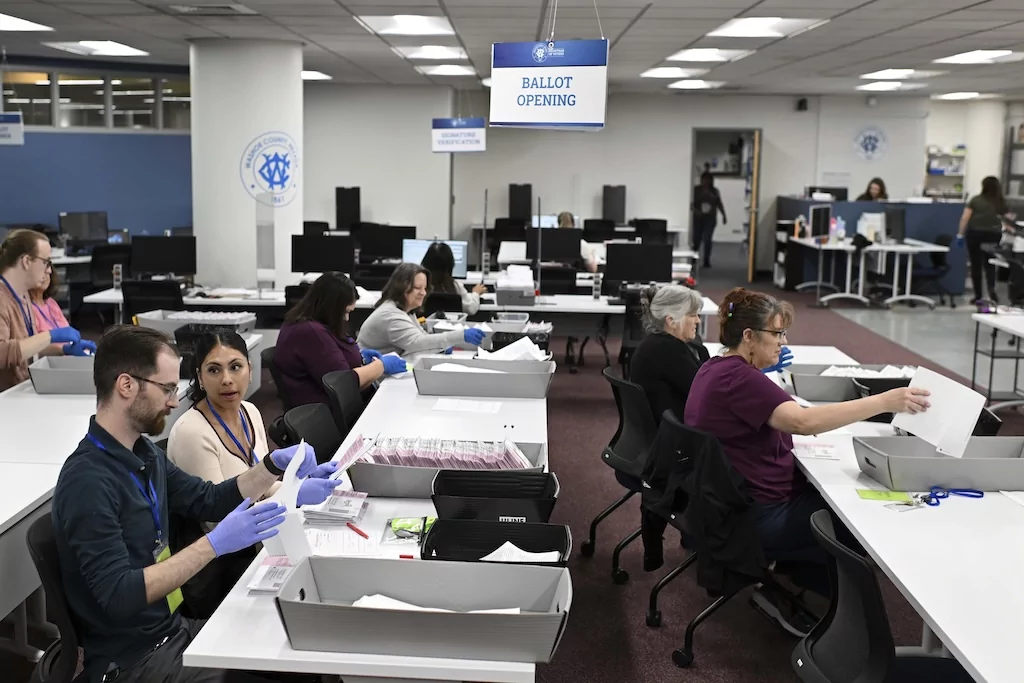

As Rep. Bob Good (R-VA) hopes a recount in his primary will save him from losing his seat in Congress, the rarity of recounts changing results means he should not get his hopes up.
In recent years, few race results have changed after recounts despite many election challenges. With Good looking for a miracle in the GOP primary for Virginia’s 5th Congressional District, here are three races where a recount flipped an election result.
2004 Washington gubernatorial election
Washington has not elected a Republican governor since 1980, but it nearly did so in 2004. The gubernatorial matchup between Democrat Christine Gregoire and Republican Dino Rossi was the closest governor’s race in modern history.
The initial count a week after the election found Rossi leading Gregoire by 261 votes, prompting a machine recount. Following the machine recount, Rossi’s lead was narrowed to 42 votes.
The closer margin prompted the state Democratic Party to pay for a hand recount, which initially put Gregoire up by eight votes before expanding her lead to 130 votes. The increased margin came after King County officials found votes that had been allegedly missed on initial counts, according to KING 5.
The close election set off a litany of court challenges, including over the additional votes found and other votes Republicans had argued had been cast illegally. The GOP court challenges were unsuccessful, with the final court case ending on June 7, 2005, months after Gregoire had been inaugurated as governor.
2006 Vermont auditor of accounts election
A lower-profile statewide race in Vermont two years later also featured a recount changing the outcome of a race.
In the contest for state auditor, incumbent Republican Randy Brock was certified as the winner over Democratic challenger Thomas Salmon by 137 votes. The close margin was grounds for a recount.
After the recount in December 2006, Vermont Secretary of State Deborah Markowitz announced that Salmon defeated Brock by 102 votes. Markowitz said the additional votes for Salmon in the recount were erroneously given to a third-party candidate in the initial count of the votes, according to the New York Times.
2008 Minnesota Senate election
One of the most bitterly contested recounts occurred in the 2008 Senate race in Minnesota.
Republican Norm Coleman, the incumbent, was shown to be ahead of Democratic challenger Al Franken by roughly 215 votes in the initial count, but a recount then put Franken up by 225 votes. The state certified the recount margin, but Coleman challenged the recount in court.
CLICK HERE TO READ MORE FROM THE WASHINGTON EXAMINER
The legal challenges played out for months until the Minnesota Supreme Court ruled in Franken’s favor in June 2009. Coleman declined to appeal further and conceded the race.
A conservative watchdog group later alleged that it suspected more than 1,000 ineligible convicted felons voted in Democratic hotbeds in the Senate election, casting some doubt on the election results. Franken’s Senate race victory gave Democrats a 60-seat supermajority in the chamber at the time.






